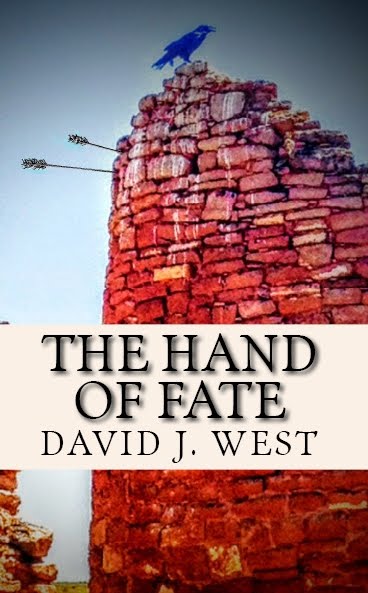
Looking back 2010 sure has been good to me. My first novel was published, quite a number of short stories were accepted for publication by a half-dozen different houses-though we'll be waiting until next year to share those.
In reviewing my favorites of the year I'll look first at music-apparently I'm getting old enough that even when I try to say what my favorite stuff released this year was-I come to find out 'they' were released in 2009. Oh well, Delain's second album April Rain was still my favorite new stuff of 2010. I'll also mention The Crystal Method's: Divided By Night (another favorite album released 2009) I listened to it all year writing action scenes & Goldfrapp's bizarre Head First was actually (released this year) its good, although not as moving as 2005's Supernature.
I didn't see too many movies in theaters, I usually wait for DVD - but of new films I saw this year I probably liked...this is even harder than current music...nothing is coming to mind that's how dreadful the year was. I remember TV better, I enjoyed The Office and Community and the History Channel when they actually air history instead of reality Tv-for movies, I do have high hopes for True Grit and Season of the Witch.
Bookwise-this was a new kind of year for me-I didn't read too many popular novels (Pirate Latitudes by Michael Crichton and The Burning Lands by Bernard Cornwell-both were good but neither author was at the top of their game either-Crichton for obvious reasons) Instead I read, reviewed and thoroughly enjoyed a lot of books by folks I'd like to call friends.
Charles Allen Gramlich

: Swords of Talera, Bitter Steel,
Tamara Hart Heiner: Perilous, Abby Arington: Precession, Dan Wells: I Am Not A Serial Killer, John Brown: Servant of A Dark God,
Daron Fraley: The Thorn (which was graced by a blurb of mine on the back cover).

I read a lot of history the standouts being Wayward Saints by Ronald Walker, Pirates and the Lost Templar Fleet by David Hatcher Childress, and Fortune is A River by Roger D. Masters.

I also reread a lot of favorites like The Mothman Prophecies by John Keel, Night Winds by Karl Edward Wagner and The Black Stranger collection by Robert E. Howard, oh and his huge Collected Poetry.

I come away from all of it grateful for the new friends I have made, the prose I have enjoyed and the influence of excellent writers. It turns out that I cannot say any one book was my favorite of the year. That's not a cop-out so much as an admission that I just can't nail it down.
We lost my two of my all time favorite artists this year: Frank Frazetta

and
Arnold Friberg

Their gifts will be missed.
Looking forward, I believe 2011 will be even better for me and my family-see you there.
















































































